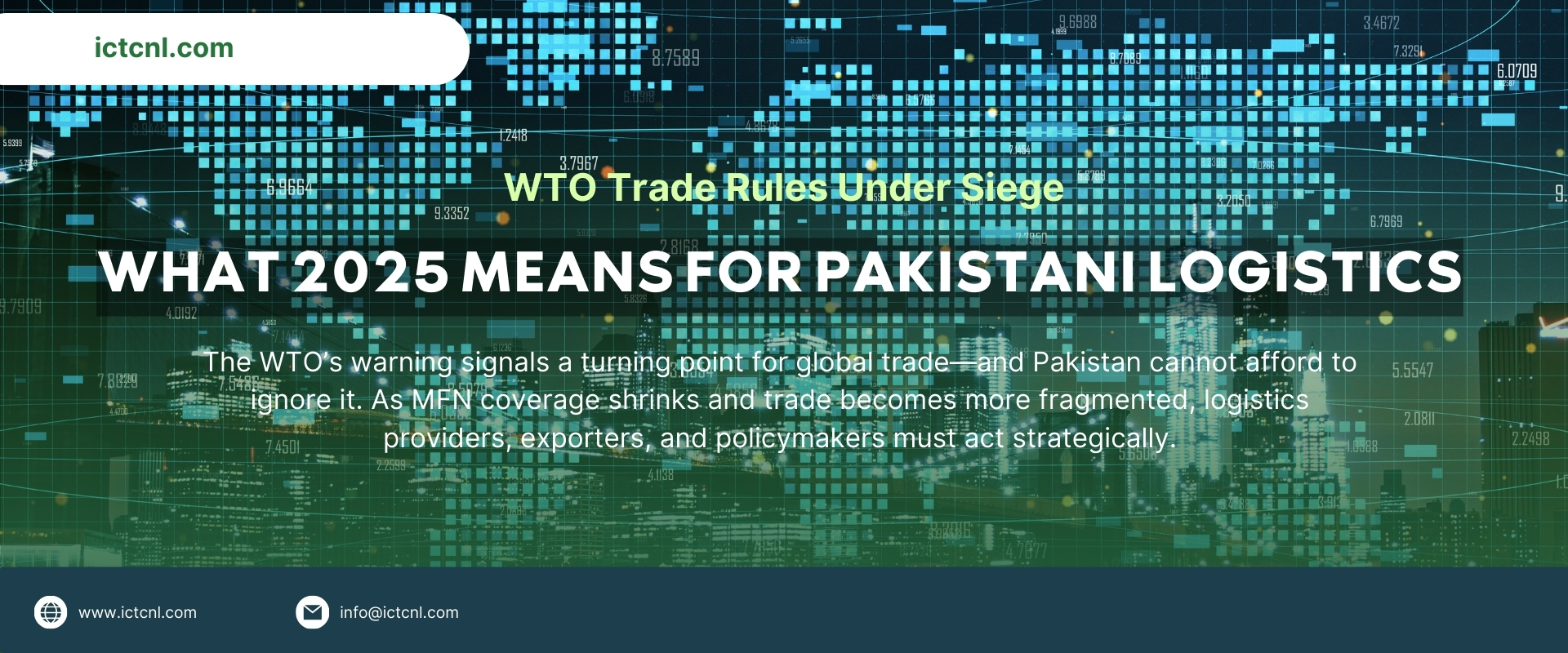
Global trade is entering uncharted territory. The World Trade Organization (WTO) recently warned that international trade rules are facing their most serious disruption in nearly 80 years. According to WTO Director-General Ngozi Okonjo-Iweala, the share of global trade covered by Most Favoured Nation (MFN) principles has fallen to 72%, down from 80% just a few years ago.
For Pakistan’s trade and logistics sector, this shift signals uncertainty, higher costs, and the need for rapid adaptation.
Why the WTO Warning Matters
The WTO’s MFN principle ensures that countries treat each other’s goods and services equally. When fewer goods fall under this rule, it means tariffs, trade restrictions, and preferential treatment are reshaping global supply chains.
For Pakistan, which relies heavily on international trade for raw materials, food imports, and export markets, this erosion of predictable rules could make cross-border business riskier and more expensive.
Impact on Pakistan’s Trade and Logistics
Higher Freight and Tariff Risks
With tariffs rising worldwide, freight forwarders and importers in Pakistan may face sudden cost increases. Cargoes that were once predictable in pricing may now fluctuate due to political or bilateral trade changes.Uncertain Export Markets
Pakistani exporters—especially in textiles, FMCG, and agriculture—may encounter new barriers when shipping to Europe, the U.S., or Asian markets.Logistics Planning Challenges
Shipping lines and logistics providers in Pakistan must adapt to changing trade lanes, rerouting cargoes through countries with fewer restrictions. This increases transit times and operational risks.Foreign Exchange Pressures
With Pakistan already battling a widening trade deficit, higher global tariffs could worsen foreign exchange stability, making imports more expensive and hurting business margins.
Opportunities Amid Disruption
While the disruption is real, it also presents opportunities:
Strengthening Regional Trade: Pakistan can expand trade with neighbors in Central Asia, the Middle East, and Africa to diversify away from high-tariff markets.
Gwadar Port & CPEC: Leveraging Gwadar and China-Pakistan Economic Corridor (CPEC) connectivity could reduce dependency on volatile global routes.
Digital Logistics: Investing in digital documentation, blockchain tracking, and compliance systems can help Pakistani businesses remain competitive in a complex trade environment.
Green Logistics & Compliance: With sustainability becoming part of trade requirements, Pakistani firms that adopt eco-friendly logistics early will gain a competitive edge.
Conclusion
The WTO’s warning signals a turning point for global trade—and Pakistan cannot afford to ignore it. As MFN coverage shrinks and trade becomes more fragmented, logistics providers, exporters, and policymakers must act strategically.
Strengthening regional ties, adopting digital tools, and enhancing port infrastructure are not just options—they are necessities for keeping Pakistan’s trade routes open and competitive in 2025 and beyond.

Add a Comment